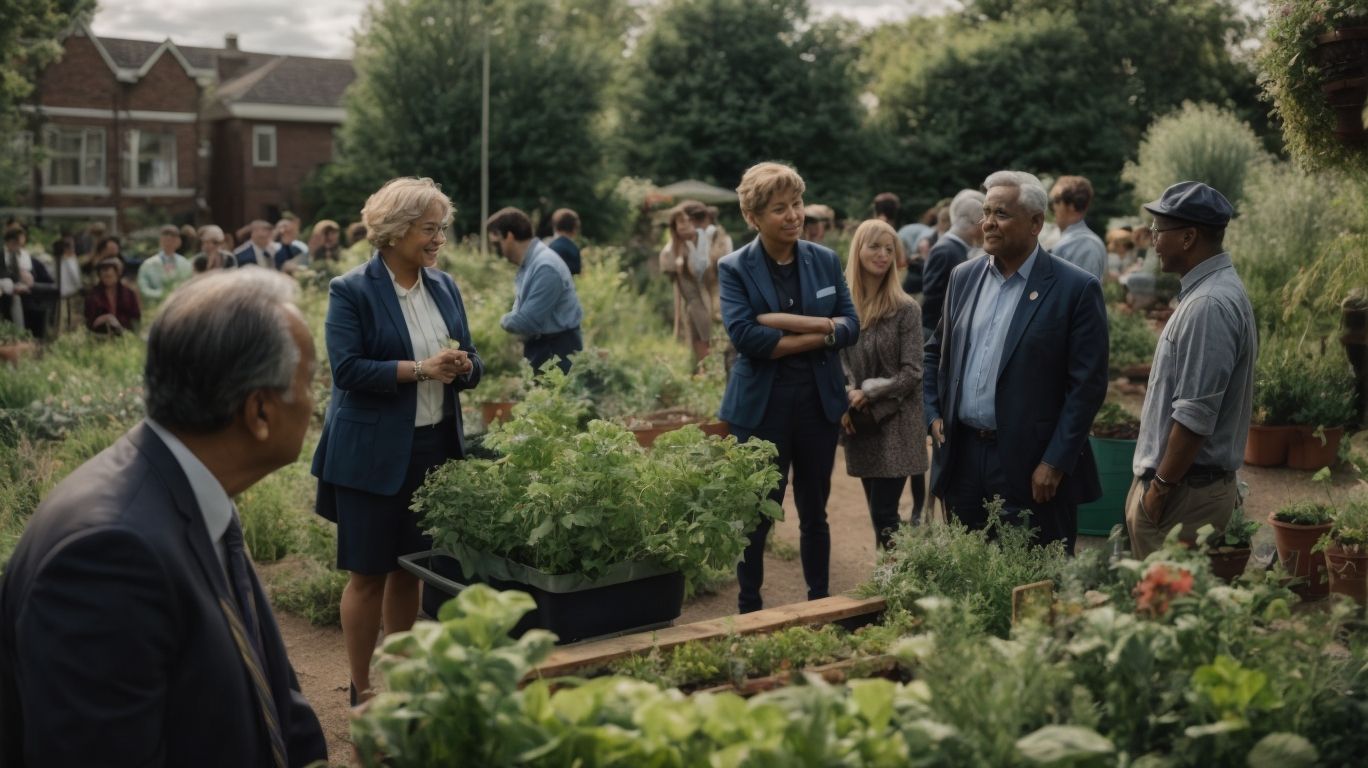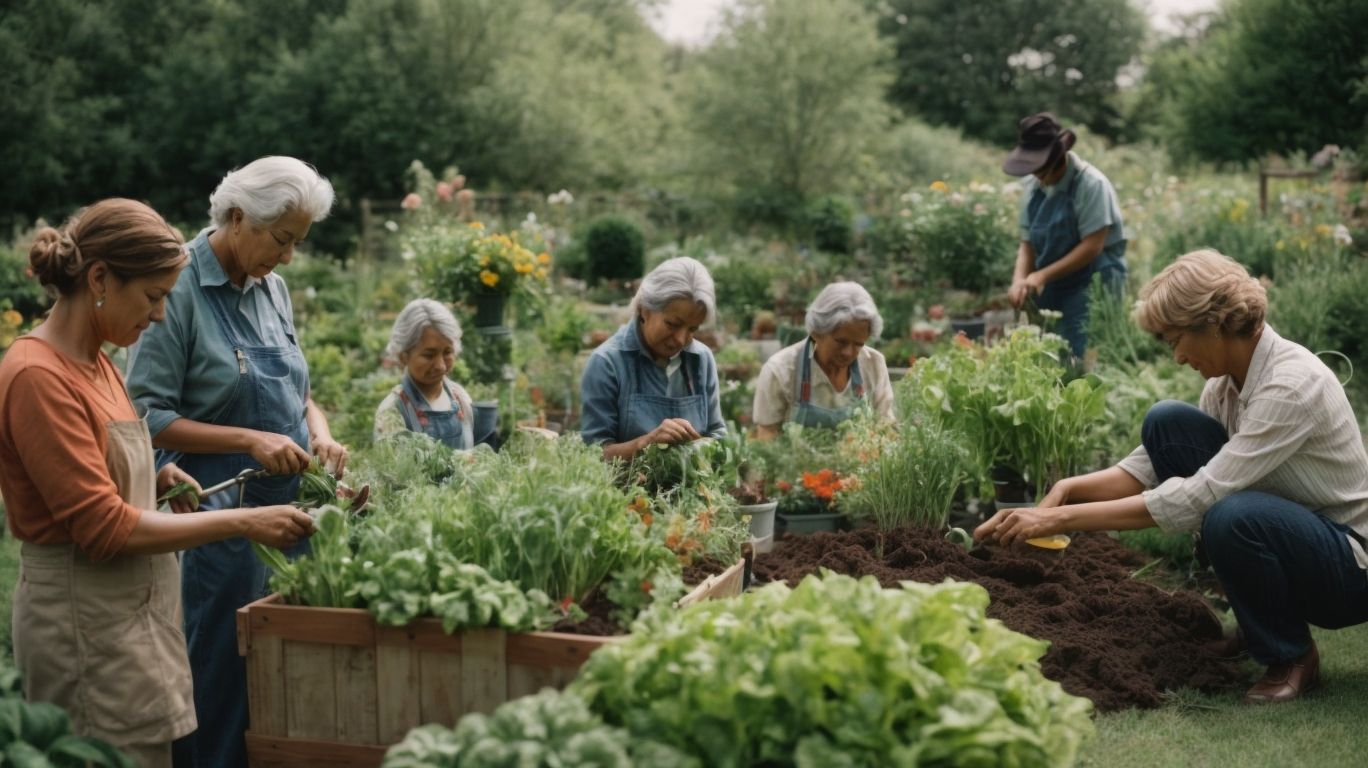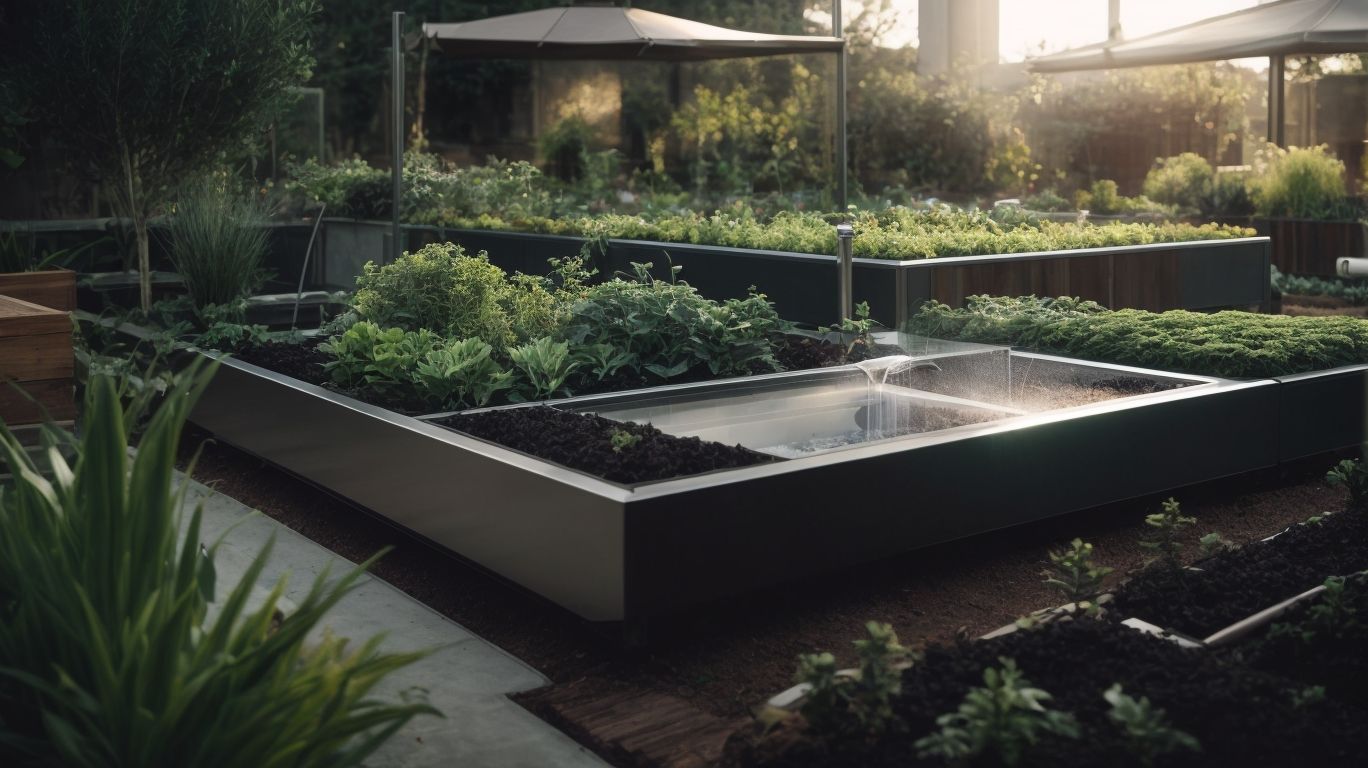Are you looking to enhance your gardening practices by incorporating alternatives to traditional composting? In this comprehensive guide, we delve into the benefits and methods of using alternatives to compost in gardening. From faster breakdown of organic matter to higher nutrient content, there are numerous advantages to explore.
We’ll also discuss various alternatives such as worm castings, manure, leaf mold, green manure, mulch, and biochar, and how to effectively incorporate them into your gardening routine. We’ll cover important precautions to consider when using these alternatives, such as proper application rates, checking for contamination, monitoring pH levels, and ensuring nutrient balance. Whether you’re a seasoned gardener or just starting out, this article will provide valuable insights to elevate your gardening practices.
Key Takeaways:
Why Use Alternatives to Compost in Gardening?
Using alternatives to compost in gardening offers a range of benefits and environmentally friendly solutions to nourish soil and promote plant growth.
Many gardeners opt for mulch as a viable alternative to traditional compost. Mulch helps to regulate soil temperature, conserve moisture, and suppress weed growth, which are essential factors in promoting a healthy gardening environment.
Additionally, cover crops can be utilized to enhance soil fertility and structure, effectively preventing erosion and improving nutrient retention. Embracing these alternatives not only supports sustainable gardening practices but also nurtures a diverse and thriving ecosystem within the garden.
What Are the Benefits of Using Alternatives to Compost?
Employing alternatives to compost offers numerous benefits, including faster organic matter breakdown, higher nutrient content, reduced maintenance, and sustainable options for soil health and plant growth.
Faster Breakdown of Organic Matter
Utilizing alternatives to compost can lead to the accelerated breakdown of organic matter, facilitating the release of vital nutrients and enhancing microbial activity within the soil.
Research has shown that alternative systems for organic matter decomposition can offer several distinct benefits. One major advantage is the speed at which organic matter breaks down, contributing to the enhancement of soil quality. This faster breakdown not only accelerates the release of essential nutrients but also promotes the proliferation of beneficial soil microorganisms, fostering a healthier soil ecosystem.
The biodegradability of these alternatives plays a crucial role in sustaining the balance of organic matter in soil, ensuring a continuous supply of nutrients for plant growth.
Higher Nutrient Content
Alternatives to compost can offer higher nutrient content, enriching the soil and providing essential elements for robust plant growth in organic farming and gardening.
For instance, worm castings are rich in nitrogen, phosphorus, potassium, and micronutrients, which are crucial for promoting healthy and vigorous plant development. Similarly, cover crops such as legumes fix nitrogen, improving soil fertility and adding organic matter as they decompose. Compost tea is another potent alternative, delivering a concentrated liquid form of nutrients straight to plant roots, bolstering their overall health and productivity.
Less Maintenance
Opting for alternatives to compost can result in decreased maintenance efforts, offering sustainable solutions that require minimal intervention for soil nourishment and plant care.
One alternative to composting is the use of organic mulches, such as wood chips or straw, which not only nourish the soil but also reduce the need for frequent watering and weeding. Incorporating cover crops and green manures can improve soil fertility and structure, minimizing the need for chemical fertilizers. Utilizing permaculture techniques and regenerative agriculture principles can further enhance the resilience of the ecosystem, reducing the ongoing maintenance requirements as the natural processes continue to support plant growth.
There are numerous educational resources available to guide individuals in implementing these sustainable soil nourishment methods, including workshops, online courses, and community gardening initiatives.
More Sustainable Options
Exploring alternatives to compost presents more sustainable options, such as plastic mulch, cover crops, and reduced tillage practices, contributing to climate resilience and environmentally conscious gardening methods.
Plastic mulch, for instance, creates a protective barrier that conserves soil moisture, suppresses weed growth, and moderates soil temperature, effectively reducing the need for constant irrigation and chemical weed control. Cover crops, like legumes and grasses, enrich the soil with essential nutrients, enhance its structure, and minimize erosion, thereby bolstering its long-term fertility without relying on synthetic fertilizers.
Reduced tillage practices reduce soil disturbance, increase organic matter retention, and foster a more biodiverse soil ecosystem, ultimately promoting the sustainability and resilience of garden soils.
What Are Some Alternatives to Compost?
Various alternatives to compost can be utilized in gardening, including worm castings, manure, leaf mold, green manure, mulch, and biochar, each offering unique benefits for soil and plant health.
Worm Castings
Worm castings serve as an effective alternative to compost, enriching the soil with organic matter and beneficial microbial fibers, supporting healthy plant growth in organic gardening practices.
These precious castings are the feces of earthworms, which provide a rich source of essential nutrients and minerals, including nitrogen, phosphorus, potassium, and calcium. They act as natural humus, enhancing soil structure and water retention while improving aeration, root development, and overall fertility. Their fine texture and neutral pH level make them suitable for a wide variety of plants, promoting robust growth and disease resistance. When incorporated into organic gardening methods, worm castings present a sustainable and eco-friendly way to nourish the soil and cultivate thriving, resilient gardens.
Manure
Manure serves as a traditional yet effective alternative to compost, providing valuable nutrients for crops, promoting soil fertility, and contributing to climate-resilient farming practices.
Manure, often sourced from animal waste, has been utilized for centuries to replenish the soil and nourish crops. Its nutrient-rich composition, including nitrogen, phosphorus, and potassium, makes it an excellent natural fertilizer, supporting the growth and yield of various agricultural produce. The incorporation of manure into farming practices also helps in reducing reliance on chemical fertilizers, thereby fostering sustainable and eco-friendly agriculture. This approach aligns with the principles of organic farming and regenerative agriculture, emphasizing soil health and long-term land stewardship.
Leaf Mold
Leaf mold presents a valuable alternative to compost, serving as an organic mulch and soil cover to promote soil health and enhance the garden’s natural ecosystem.
It is created through the decomposition of leaves, which results in a nutrient-rich material that can be used as a top dressing for soil or as a protective layer to retain moisture and suppress weed growth. When leaf mold is incorporated into the garden soil, it enriches its structure by improving its water retention and drainage, while also enhancing its fertility and promoting the growth of beneficial microorganisms.
Green Manure
Green manure offers an alternative method to nourish the soil, enhance crop growth, and promote organic farming practices, serving as a valuable educational resource for sustainable soil management.
When used in agricultural practices, green manure involves planting certain crops, such as legumes or clover, to improve soil health through nitrogen fixation and organic matter enrichment. This process not only adds essential nutrients to the soil but also reduces the need for chemical fertilizers, contributing to a more sustainable and eco-friendly farming approach.
Mulch
Mulch serves as a versatile alternative to compost, offering options such as plastic, woodchips, and living mulches to cover and protect the soil, supporting its health and promoting sustainable gardening practices.
Plastic mulch, for instance, is commonly used in agricultural settings to control weeds and pests while conserving soil moisture. On the other hand, organic mulches, like straw and bark, provide a natural barrier against erosion, regulate soil temperature, and enhance microbial activity. The use of mulch helps maintain soil structure, minimizes water loss, and reduces the need for chemical fertilizers, thereby nurturing sustainable gardening methods.
All in all, mulch plays a vital role in ensuring soil health and fostering environmentally friendly approaches to gardening.
Biochar
Biochar presents an innovative alternative to compost, enriching the soil, promoting crop growth, and fostering sustainable no-till agricultural practices through its unique properties and resources.
Biochar, a carbon-rich material produced from plant-based or organic waste undergoing pyrolysis, offers a multitude of benefits beyond traditional composting. When incorporated into the soil, biochar enhances its structure, water retention, and nutrient-holding capacity, providing a fertile environment for crop growth. Its porous nature serves as a habitat for beneficial microorganisms, supporting soil ecology and reducing the need for chemical fertilizers.
Another remarkable advantage of using biochar is its ability to sequester carbon, mitigating greenhouse gas emissions. This long-term storage of carbon in the soil can contribute to climate change mitigation efforts. In no-till agriculture, biochar acts as a stable organic amendment, aiding in minimizing soil disturbance and erosion while maintaining soil health.
How to Use Alternatives to Compost in Gardening?
Utilizing alternatives to compost in gardening involves various methods such as mixing with soil, top dressing, composting in place, and using as mulch, offering sustainable and efficient solutions for soil nourishment and plant care.
Mixing with Soil
Incorporating alternatives to compost by mixing with soil is a sustainable practice that enhances the soil’s organic content and supports healthy plant growth, contributing to climate-resilient and environmentally conscious gardening.
When you add alternatives to compost, such as:
- grass clippings
- leaves
- straw
to the soil, it increases the nutrient levels and improves the soil structure. This results in improved water retention, aeration, and microbial activity. The diverse mixture enriches the soil with essential organic matter, fostering the growth of beneficial microorganisms and strengthening the plants’ resilience against pests and diseases. Ultimately, this approach promotes a sustainable gardening ecosystem, reducing the reliance on chemical fertilizers and cultivating a healthier environment for future generations.
Top Dressing
Top dressing with alternatives to compost offers an efficient method to provide essential nutrients for plants, promote cover crops, and support direct seeding, utilizing natural resources for sustainable soil nourishment.
When considering top dressing, it’s important to understand that it involves the application of a thin layer of organic material or fertilizers directly onto the soil surface. This technique not only enriches the soil with vital nutrients but also helps in suppressing weed growth, conserving soil moisture, and enhancing soil structure.
One of the key benefits of top dressing is the gradual release of nutrients to the plants, which encourages healthy growth without the risk of nutrient runoff that can occur with heavy fertilization. The protective layer formed by top dressing aids in temperature regulation, preventing extreme hot or cold temperatures from affecting the soil and roots. This can be especially beneficial for newly seeded areas.
It’s important to note that there are various alternatives to traditional compost for top dressing. For example, using organic materials such as well-aged manure, leaf mold, or even finely ground eggshells can effectively provide essential nutrients to the soil. These alternatives not only offer diverse nutrient profiles but also contribute to the overall improvement of soil health and fertility.
By incorporating top dressing with alternatives to compost in gardening practices, gardeners can create a balanced and sustainable ecosystem, promoting the health of plants, fostering cover crop development, and minimizing environmental impact.
Composting in Place
Implementing alternatives to compost through composting in place offers a natural and educational approach to support soil health, plant growth, and organic gardening systems.
Composting in place involves utilizing organic materials directly in the garden rather than creating a separate composting area. This method not only reduces waste but also enriches the soil and encourages the proliferation of beneficial microorganisms, creating a self-sustaining ecosystem.
Embracing this sustainable practice allows gardeners to witness the natural decomposition process firsthand, imparting valuable lessons about nutrient cycling and environmental stewardship to both adults and children.
Using as a Mulch
Utilizing alternatives to compost as a mulch provides a sustainable soil cover for gardens, contributing to climate-resilient and environmentally conscious practices for soil nourishment and plant care.
One popular alternative to compost as mulch is shredded leaves. Not only do they add organic matter to the soil as they break down, but they also act as a protective layer, reducing moisture evaporation and weed growth.
Another beneficial option is wood chips, which not only conserve soil moisture but also contribute to aeration. Natural materials like straw and grass clippings can serve as effective mulch, enriching the soil with valuable nutrients.
What Precautions Should Be Taken When Using Alternatives to Compost?
When using alternatives to compost, it is essential to consider precautions such as proper application rates, contamination checks, pH level monitoring, and nutrient balance assessment to ensure effective and safe soil nourishment and plant care.
Proper Application Rates
Ensuring proper application rates for alternatives to compost is crucial for maintaining soil health, promoting plant growth, and utilizing organic resources effectively in gardening and farming practices.
When determining the application rates of alternative soil amendments such as biochar, green manure, or organic fertilizers, it’s important to consider their nutrient content, decomposition rates, and potential effects on soil pH. Each soil amendment presents unique benefits and considerations.
For example, biochar can improve soil structure and water retention, but it requires careful assessment of its impact on nutrient availability. Green manure enriches the soil with organic matter and nitrogen, necessitating calculation of the right amount to avoid nutrient imbalances.
Checking for Contamination
Regular checks for contamination when using alternatives to compost are essential to safeguard soil and plant health, ensuring the absence of harmful elements and promoting an educational understanding of soil nourishment practices.
Contamination checks play a vital role in maintaining the fertility of the soil and the overall well-being of plants. By conducting these checks, gardeners and farmers can identify and rectify any harmful elements or pollutants that could have adverse effects on soil and plant health. It also fosters a deeper understanding of the intricacies of soil nourishment and the factors that contribute to a healthy growing environment. Incorporating these practices into agricultural or horticultural education can provide valuable insights into sustainable and responsible farming techniques.
Monitoring pH Levels
Regular monitoring of pH levels is vital when using alternatives to compost, ensuring optimal soil conditions for plant growth and promoting sustainable and climate-resilient practices in gardening and agriculture.
By tracking the pH levels, gardeners and farmers can make informed decisions about the selection and application of organic matter substitutes. The pH of the soil directly impacts its fertility, which in turn affects plant nutrient uptake and overall health. Ensuring that the soil pH remains within the ideal range also contributes to the long-term sustainability of the growing environment by creating favorable conditions for microbial activity and nutrient cycling.
Along with fostering healthy plant growth, maintaining proper pH levels in the soil supports ecosystem resilience and adaptation to changing climatic conditions.
Considering Nutrient Balance
Considering nutrient balance when using alternatives to compost is essential for maintaining soil health, optimizing plant nutrition, and fostering climate-resilient and organic gardening practices.
When exploring alternatives to traditional compost, it’s important to ensure that the nutrient balance is adequate to support the soil and plants. Whether utilizing organic matter, such as leaf mold or grass clippings, or incorporating mineral-based options like rock dust or seaweed extracts, the key is to maintain a harmonious blend of essential nutrients for the soil.
This not only nourishes the plants but also aids in building a more climate-resilient ecosystem, reducing reliance on synthetic fertilizers and contributing to sustainable gardening practices.
Frequently Asked Questions
What are some alternatives to traditional composting in gardening?
There are several alternatives to traditional composting in gardening including using worm castings, vermicomposting, leaf mulching, grasscycling, and using organic fertilizer such as fish meal or bone meal.
How do I use worm castings as an alternative to compost in gardening?
To use worm castings, simply mix them into the top few inches of soil in your garden bed. You can also make a “tea” by steeping worm castings in water for a few hours and using the liquid to water your plants. Worm castings are rich in nutrients and beneficial microorganisms, making them a great alternative to traditional compost.
Can vermicomposting be used as a substitute for traditional composting in gardening?
Yes, vermicomposting is a great alternative to traditional composting in gardening. It involves using worms to break down organic matter into nutrient-rich compost. This method is especially useful for smaller spaces like apartments or balconies.
What is leaf mulching and how can it be used as an alternative to compost in gardening?
Leaf mulching involves shredding fallen leaves and spreading them over the soil in your garden bed. This helps retain moisture, suppress weeds, and add nutrients to the soil as the leaves decompose. It can be a great alternative to traditional composting, especially in the fall when leaves are abundant.
How does grasscycling work as an alternative to compost in gardening?
Grasscycling is the practice of leaving grass clippings on your lawn after mowing, instead of bagging them for disposal. This returns valuable nutrients to the soil, acting as a natural fertilizer. Grasscycling can be an easy and efficient alternative to traditional composting.
Can I use organic fertilizers as an alternative to compost in gardening?
Yes, organic fertilizers such as fish meal, bone meal, and seaweed extract can be used as a substitute for traditional compost in gardening. These natural fertilizers provide nutrients to the soil and can help improve plant growth and health. Be sure to follow the recommended application rates for best results.


